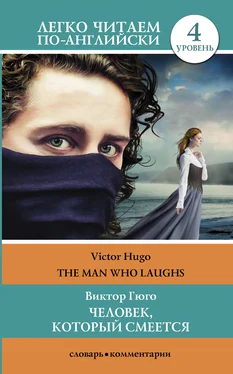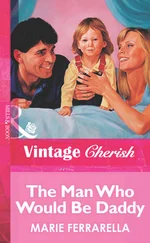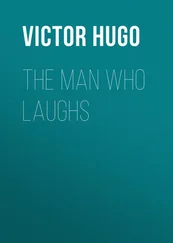Behind the stove there was a jug. He took it and handed it to the boy.
“Will you drink?”
The child drank, and then went on eating. Ursus seized the pitcher again. He swallowed some mouthfuls and made a grimace.
“Water! You are warm at the top and cold at bottom.”
In the meantime the boy had finished his supper. The porringer was more than empty; it was cleaned out. Ursus turned towards the boy.
“That is not all. The mouth is not made only for eating; it is made for speaking. Now you are going to answer my questions. Whence do you come?”
The child replied, -
“I do not know.”
“How do you mean? you don’t know?”
“I was abandoned this evening on the sea-shore.”
“You little scamp! What’s your name? He is so good for nothing that his relations desert him.”
“I have no relations.”
“I do not like those who tell lies. You must have relatives since you have a sister.”
“It is not my sister.”
“It is not your sister?”
“No.”
“Who is it then?”
“It is a baby that I found.”
“Found?”
“Yes.”
“What! did you pick her up?”
“Yes.”
“Where? If you lie I will exterminate you.”
“On the breast of a woman who was dead in the snow.”
“When?”
“An hour ago.”
“Where?”
“A league from here.”
“Dead! Lucky for her! We must leave her in the snow. She is well off there. In which direction?”
“In the direction of the sea.”
“Did you cross the bridge?”
“Yes.”
Ursus opened the window at the back and examined the view. The weather had not improved. The snow was falling thickly and mournfully. He shut the window.
Ursus took a large book which he had in a corner, placed it under the skin for a pillow, and laid the head of the sleeping infant on it. Then he turned to the boy.
“Lie down there.”
The boy obeyed, and stretched himself at full length by the side of the infant. Ursus rolled the bear-skin over the two children, and tucked it under their feet.
Then he took the lantern and lighted it. Ursus half opened the door, and said, -
“I am going out; do not be afraid. I shall return. Go to sleep.”
Then he called Homo. Homo answered by a loving growl. Ursus, holding the lantern in his hand, descended. The door was closed. The children remained alone. From without, a voice, the voice of Ursus, said, -
“You, boy, who have just eaten up my supper, are you already asleep?”
“No,” replied the child.
“Well, if she cries, give her the rest of the milk.”
A few minutes after, both children slept profoundly.
The beginning of day is sinister. A sad pale light penetrated the hut. It was the frozen dawn. The caravan was warm. The light of dawn was slowly taking possession of the horizon. Only a few large stars resisted.
The boy opened his eyes. He lay in a state of semi-stupor, without knowing where he was or what was near him, without making an effort to remember, gazing at the ceiling. He gazed dreamily at the letters of the inscription – “Ursus, Philosopher”. The sound of the key turning in the lock caused him to turn his head.
The boy awoke. The wolf gave him a morning yawn, showing two rows of very white teeth. The boy, seeing the wolf in the caravan, got out of the bear-skin, and placed himself in front of the little infant, who was sleeping more soundly than ever.
Ursus had just hung the lantern up on a nail in the ceiling. His eyes were glassy. He exclaimed, -
“Happy, doubtless! Dead!”
He bent down, -
“I found her. The mischief had buried her under two feet of snow. Homo helped me. How cold she was! I touched her hand – a stone! What silence in her eyes! How can any one be such a fool as to die and leave a child behind? A pretty family I have now! A boy and a girl!”
Whilst Ursus was speaking, Homo sidled up close to the stove. The hand of the sleeping infant was hanging down between the stove and the chest. The wolf licked it so softly that he did not awake the little infant. Ursus turned round.
“Well done, Homo. I shall be father, and you shall be uncle. Adoption! Homo is willing.”
Raising his eyes, they met those of the boy, who was listening. Ursus addressed him abruptly, -
“What are you laughing about?”
The boy answered, -
“I am not laughing.”
Ursus looked at him fixedly for a few minutes, and said, -
“Then you are frightful.”
The interior of the caravan, on the previous night, had been so dark that Ursus had not yet seen the boy’s face. The broad daylight revealed it. He placed the palms of his hands on the two shoulders of the boy, and exclaimed, -
“Do not laugh any more!”
“I am not laughing,” said the child.
Ursus was seized with a shudder from head to foot.
“You do laugh, I tell you.”
Then he asked him: roughly, -
“Who did that to you?”
The child replied, -
“I don’t know what you mean.”
“How long have you had that laugh?”
“I have always been thus,” said the child.
Ursus turned towards the chest. Then the sun arose. The red rays gleamed through the glass, and struck against the face of the infant, which was turned towards him. Her eyeballs reflected his purple orbit like two mirrors. The eyeballs were immovable, the eyelids also.
“See!” said Ursus. “She is blind.”
LORD CLANCHARLIE AND LORD DAVID DIRRY-MOIR
There was, in those days, an old tradition. That tradition was Lord Clancharlie. He was one of the peers of England – few in number – who accepted the republic. He had retired into Switzerland, and dwelt in a sort of lofty ruin on the banks of the Lake of Geneva. It was the sketch of a madman. Thinking of Lord Clancharlie, some laughed out aloud, others could not restrain their anger. Lord Clancharlie had never had any brains. Everyone agreed on that point.
Lord Clancharlie. was walking, his hands behind him, along the shores of the Lake of Geneva. In London they sometimes spoke of the exile. He was accused before the tribunal of public opinion. They pleaded for and against him.
But Lord Clancharlie had not always been old and proscribed. He had had his phase of youth and passion. He had a natural child, a son. This son was born in England in the last days of the republic, just as his father was going into exile. Hence he had never seen his father. This bastard of Lord Clancharlie had grown up at the court of Charles II. Then he prospered under James II.
The king is dead. Long live the king! It was on the accession of the Duke of York that he obtained permission to call himself Lord David Dirry-Moir, from an estate which his mother had left him.
Lord David was head of the king’s granary. He had the management of the race-horses. He was a brave lord, handsome, generous, and majestic in look and in manner. His person was like his quality. He was tall in stature as well as high in birth.
The king had no objection to raise Lord David Dirry-Moir to the Upper House. He wanted to transform Lord David Dirry-Moir, lord by courtesy, into a lord by right.
The opportunity occurred.
One day it was announced that several things had happened to the old exile, Lord Clancharlie, the most important of which was that he was dead. People related what they knew, or what they thought they knew, of the last years of Lord Clancharlie. What they said was probably a legend. King James declared, one fine morning, Lord David Dirry-Moir sole and positive heir, and by his royal pleasure, of Lord Clancharlie, his natural father. So the king instituted Lord David Dirry-Moir in the titles, rights, and prerogatives of the late Lord Clancharlie, on the sole condition that Lord David should wed, when she attained a marriageable age, a girl who was, at that time, a mere infant a few months old, and whom the king had, in her cradle, created a duchess. This little infant was called the Duchess Josiana.
Читать дальше












